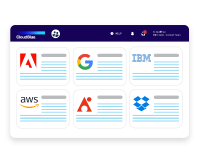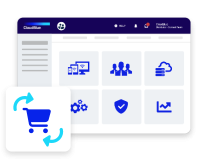A data lake is a centralized repository designed to store vast amounts of raw data in its native format until it’s needed.
Unlike structured systems, a data lake accommodates all types of data—structured, semi-structured, and unstructured—offering incredible flexibility for businesses. SaaS companies, in particular, rely on data lakes to handle the massive amounts of information generated by their applications and users.
Think of a data lake as a digital storage pool where data flows in from various sources, like IoT devices, customer interactions, or internal applications. It’s a go-to solution for businesses needing scalable, cost-effective data storage and processing capabilities. Providers like AWS often offer managed data lake services to simplify setup and management.
Data Lake vs Data Warehouse
Data lakes and data warehouses are sometimes confused, but they serve different purposes. A data warehouse is optimized for structured data and analytics, requiring data to be processed and organized before storage.
In contrast, a data lake stores data as-is, without enforcing a schema. This flexibility makes data lakes ideal for projects involving machine learning, big data analytics, and real-time processing.
For example, if your SaaS business collects customer behavior data, a data lake allows you to store and later analyze raw clicks, session data, and interactions without immediate structuring. A data warehouse, on the other hand, would require transforming that data into predefined tables and schemas before storage.
While data warehouses offer speed and consistency for business intelligence, data lakes shine in use cases that demand scalability, diverse data formats, and exploratory analytics.
Why Data Lakes Matter for SaaS
SaaS companies generate enormous amounts of data from multiple applications and platforms. A data lake provides the storage and processing power to handle it all seamlessly. This is especially useful for feeding machine learning algorithms, enabling advanced analytics, and integrating with other tools.
By using a data lake, businesses can extract meaningful insights from raw data, from predicting customer churn to optimizing user experience. AWS and similar providers often offer integrated tools for managing data lakes, ensuring consistency and scalability while keeping costs in check.
For SaaS companies focused on innovation, data lakes are a vital component of a modern data management strategy. They enable flexible, scalable, and efficient handling of data to drive better decision-making and product evolution.













